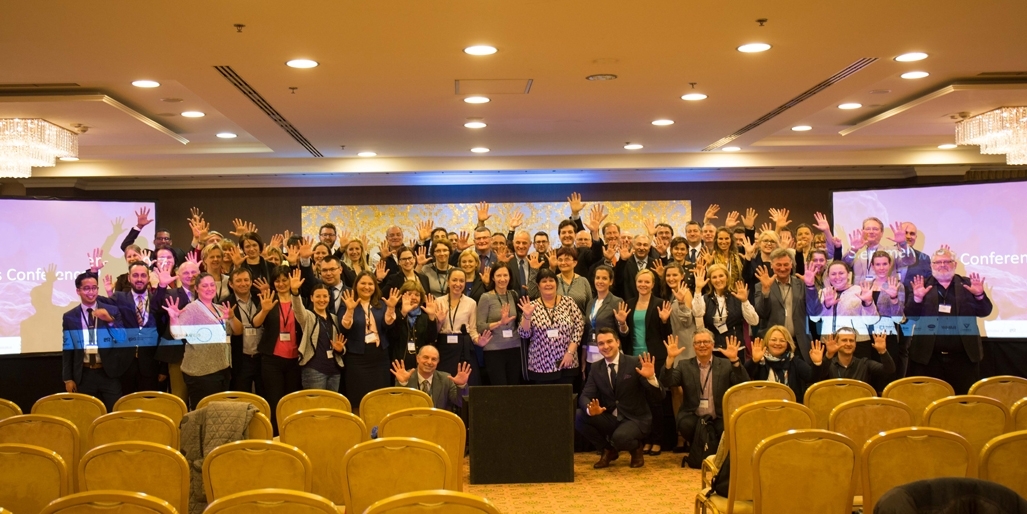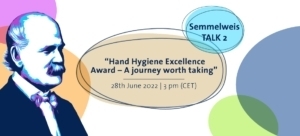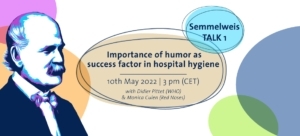Interdisciplinarity is the key for successful infection control and antibiotic stewardship in hospitals. The Semmelweis Foundation met with Dr. Agnes Wechsler-Fördös and Prof. Ojan Assadian, two experts in this field in Austria, to discuss its importance.
Despite her retirement in 2018, Dr. Agnes Wechsler-Fördös continues to be highly active. The reason is simple, says the former Head of the Department for Antibiotic and Infection Control at the Rudolfstiftung, Vienna: „As a consultant for infection control and antibiotic stewardship (ABS) I travel a lot to CEE countries: in 2018 I went to Poland and Romania, and – as expected – the situation regarding resistance is of great concern. But in Austria we also face challenges concerning the implementation of ABS-programs. As long as I have the power to pass on my expertise, I will do so.“
Currently, Dr. Wechsler-Fördös supports several hospitals in the Southeast of Austria: „What we observe there as well as in other hospitals: antibiotics are usually administered far too long, especially as antibiotic prophylaxis in surgery. One of the solutions is to build up multidisciplinary teams to foster cooperation among them”, Dr. Wechsler-Fördös is convinced. She believes that infectious disease specialists, microbiologists and clinical pharmacists should work closer together.
Dr. Wechsler-Fördös addresses this demand in many publications, among others in one from 2016 (Strategies to enhance rational use of antibiotics in hospital: a guideline by the German Society for Infectious Diseases, Springer Verlag). This evidence-based guideline summarizes the expertise of the most relevant German-speaking institutions in this field – for example the German Society for Infectious Diseases, the Austrian Society for Antimicrobial Chemotherapy, the Paul Ehrlich Society for Chemotherapy, the Austrian Association of Hospital Pharmacists and the Robert Koch Institute. “Transnational engagement is very important, as bacteria do not adhere to national borders”, Dr. Wechsler-Fördös argues. “What puzzles me is the fact, that we already established respective guidelines in Austria in 1998. I wonder when there will be legal support for ABS to be mandatory in all hospitals? I hope I will still witness that”, she says.
Hygiene is truly a cross-sectional matter
Prof. Ojan Assadian, the newly appointed Medical Director of the LK Neunkirchen, has an innovative view on hospital hygiene: „ I believe more than ever that hygiene is a truly cross-sectional matter relevant to healthcare in general“, says Prof. Assadian: “There is no area in a hospital where hygiene is not relevant to patient care or safety of healthcare workers.”
Being in close and permanent contact across all hospital levels, he observes first hand that hygiene is a topic through all managerial levels: „It is an ongoing and omnipresent aspect for physicians and other healthcare workers. In the past, as an infection control practitioner, I attended a broad range of meetings where infection control and prevention matters were discussed. However, as a Medical Director, I am attending meetings, where the topic of infection control is not welcome. Yet, I am convinced that hygienic expertise would have improved the outcome of such meetings significantly. In most cases the lack of presence of hygiene experts was due to participants’ unawareness that their agenda is fundamentally connected to hygiene.” Therefore, it becomes increasingly important to address questions such as: “How can we address the need for hygiene expertise? How can we make sure that non-professionals know when to involve hygiene experts?”
Prof. Assadian is also responsible for the strategy and organization of infection control and antibiotic treatment in a cluster of six acute care hospitals. “My biggest challenge is to find a balance between aspects of infection control, microbiological diagnostics, and antibiotic stewardship. I observe a disproportion in the interaction between clinical diagnostics, therapy, and infection prevention. Successful infection control and antibiotic stewardship, however, work only effectively if they work closely together with strong support from microbiological diagnostics. Since these areas are oftentimes organizationally separated, I see myself as mediator and conductor to merge these three elements fruitfully. My position as Medical Director does not only allow me to obtain the required data for a gap analysis, but also gives me he possibility to adapt or change work flows together with my fellow colleagues.”
Dr. Wechsler-Fördös and Prof. Assadian will be speaking at our 3rd CEE Conference on 12 and 13 March 2019.




